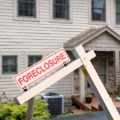
What Happens if You Don’t Pay Property Taxes?
Each year, your county tax office will mail you your property tax bill in October, with the bill due on February 1 of the following year. Any taxes not paid by that date are considered delinquent, and penalties and fees will automatically begin to accrue.
There are no specific repayment deadlines for unpaid property taxes set by either the state or individual counties. The decision on when to begin foreclosure proceedings is instead left to individual taxing entities, and it’s often made on a case-by-case basis.
However, there are some steps that will be taken by the state and county if you do not pay your taxes on time.
A Tax Lien
Although there is no specific timeframe for foreclosure, Texas delinquent property tax laws allow a tax lien on all properties as of January 1 of each year until the property taxes are paid. That lien allows the tax assessor to foreclose on a home if they believe the delinquent property taxes will not be repaid. The good news is that most tax assessors won’t begin foreclosure proceedings immediately. Instead, you will likely be given time to arrange for payment of the unpaid property taxes, but that time comes with a cost.
Penalties & Fees
Before the foreclosure process begins, your local tax assessor will charge fees on your delinquent property taxes in Texas. In February, you will be charged a 7% fee that is added to your initial bill. The interest rate will increase by 2% each month through the end of May. If you still haven’t paid your full property tax bill by June, the tax assessor will turn over your unpaid property tax bill to attorneys for collection. This will lead to a 15 to 20% penalty for attorney and legal fees in July on top of the continuing increase in your late payment fees and interest.
How Far Behind in Property Taxes Can You Be Before Foreclosure Starts?
When you owe unpaid property taxes in Texas, the foreclosure process can start at any time and can be completed in as little as 60 days if uncontested. As discussed above, the government can place a lien on your property for unpaid property taxes. If the lien is not satisfied within a reasonable amount of time, the lienholder has the right to foreclose on the property. The lienholder can foreclose if the lien is not satisfied in a reasonable timeframe, which can range from 60 days to more than 120 days. It all depends on your local taxing authority and market conditions.
Finding Help With Unpaid Property Taxes in Texas
So, reasonably, how long can you go without paying property taxes in Texas? Unfortunately, as you’ve read above, there is no simple answer to that question. That’s why it’s better to start seeking assistance as soon as you realize you may have trouble paying your property tax bill.
In most cases, the only way to stop the accruing penalties, interest charges and legal actions related to late property taxes is to pay the bill in full.
If you need assistance making that payment, the best way to deal with unpaid property taxes in Texas is a property tax loan. With a loan from a top Texas lender like Tax Ease, you can pay off your unpaid property taxes in full without a credit check or additional fees. Plus, you will be able to choose a repayment option that works for your budget. Our interest and penalty chart will help you estimate what your total cost will be.

End the Stress of Unpaid Property Taxes With Tax Ease
Since 2003, we have been helping Texas property owners escape the stress and anxiety caused by unpaid property taxes.
Tax Ease has made it easy to apply for a property tax loan. Most applicants receive approval within 24 hours, and to make the process even simpler, we will come to you anywhere in the state to sign the paperwork. Stop worrying about how long property taxes can go unpaid in Texas — avoid fees and foreclosure, and rest easy with help from Tax Ease.






